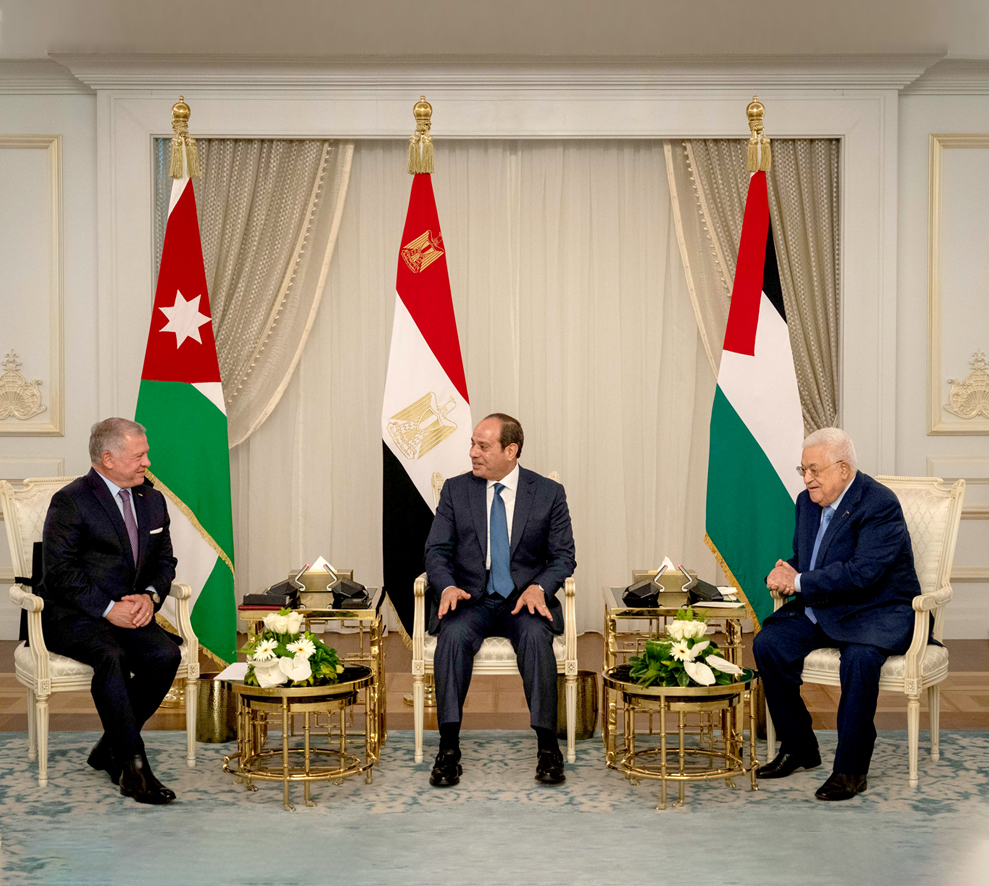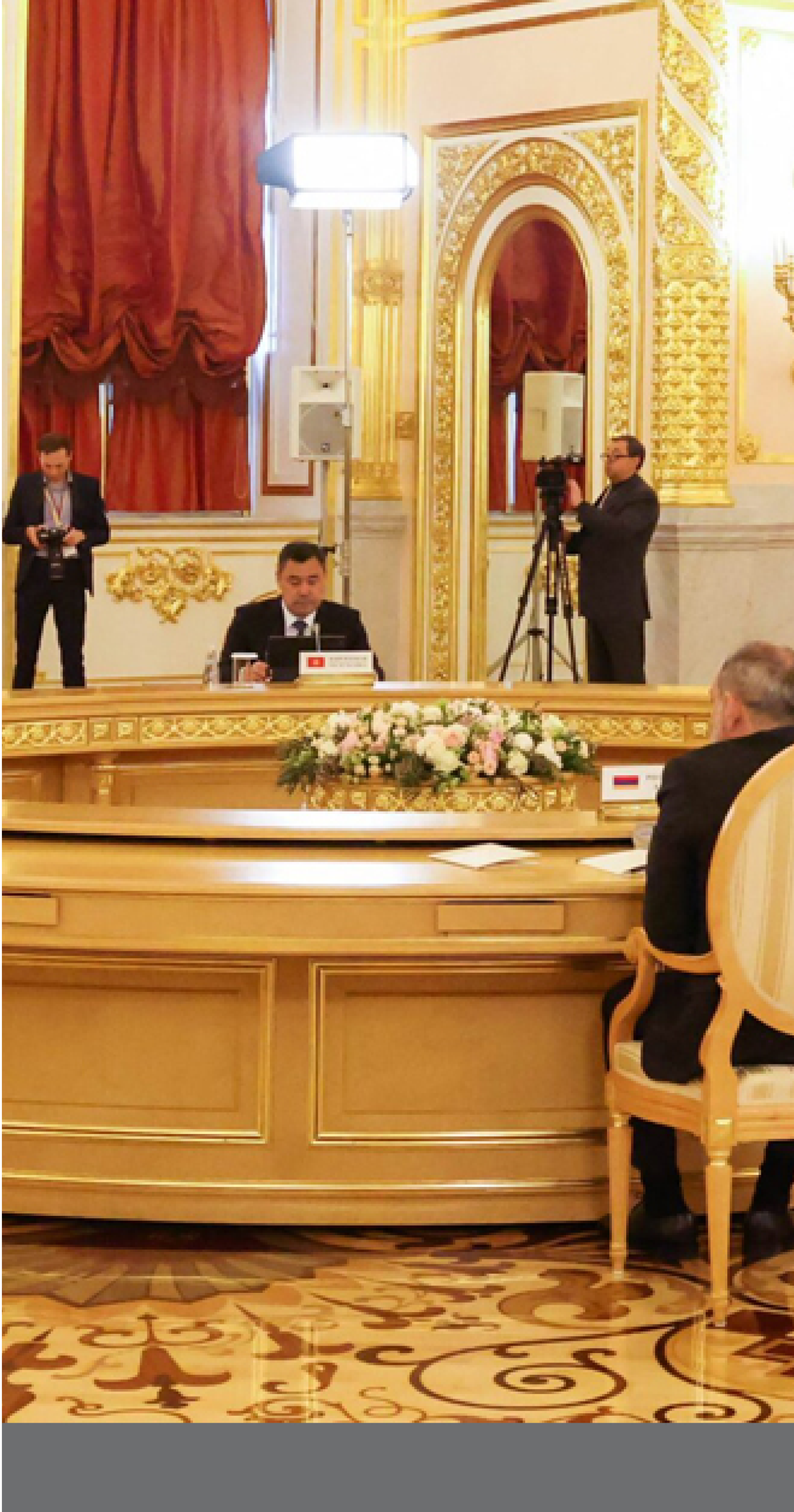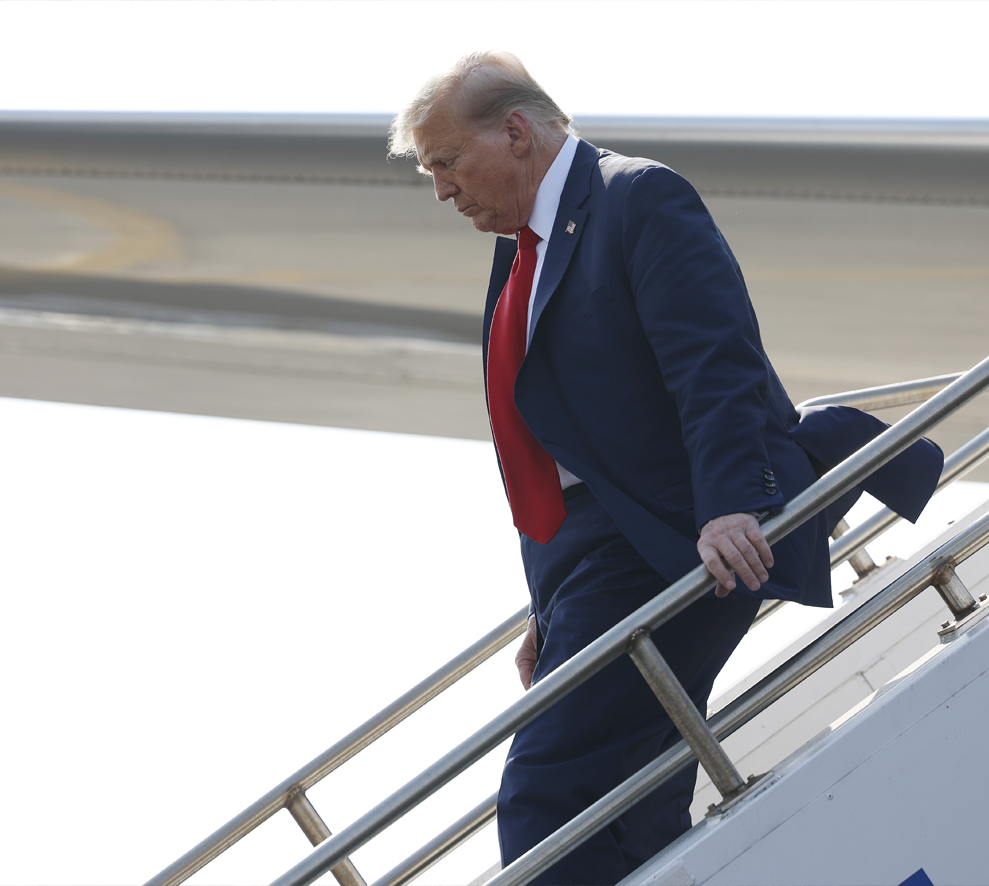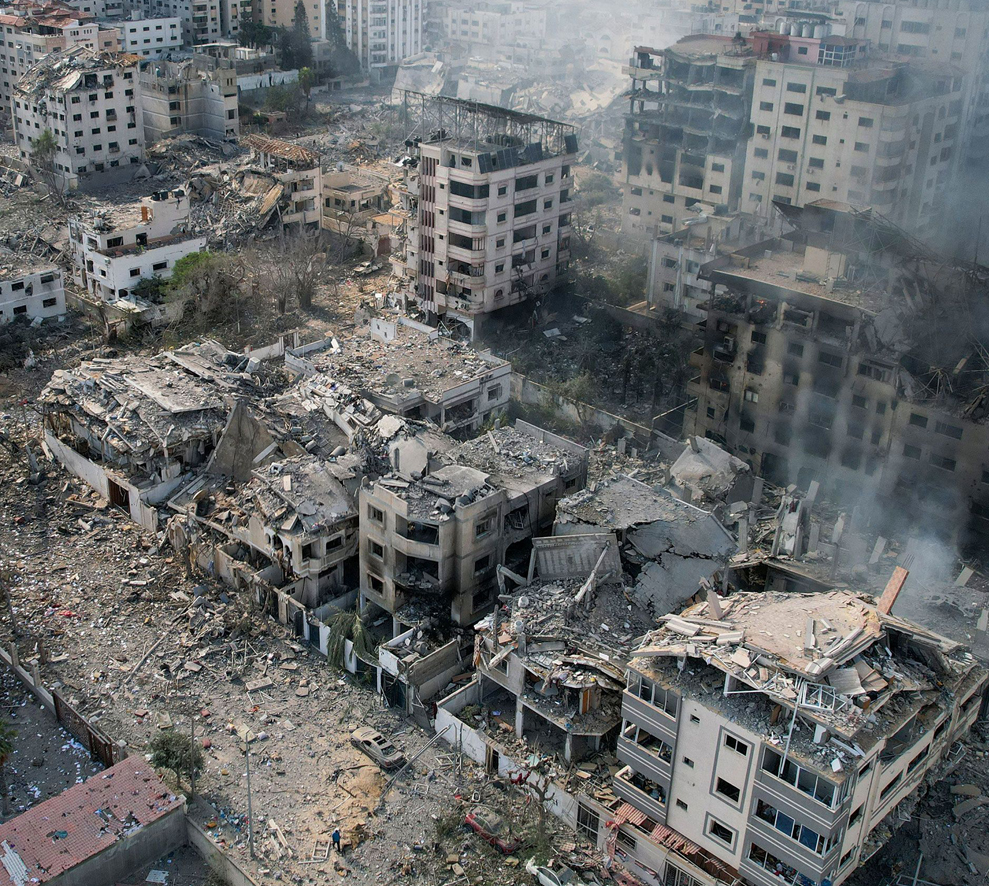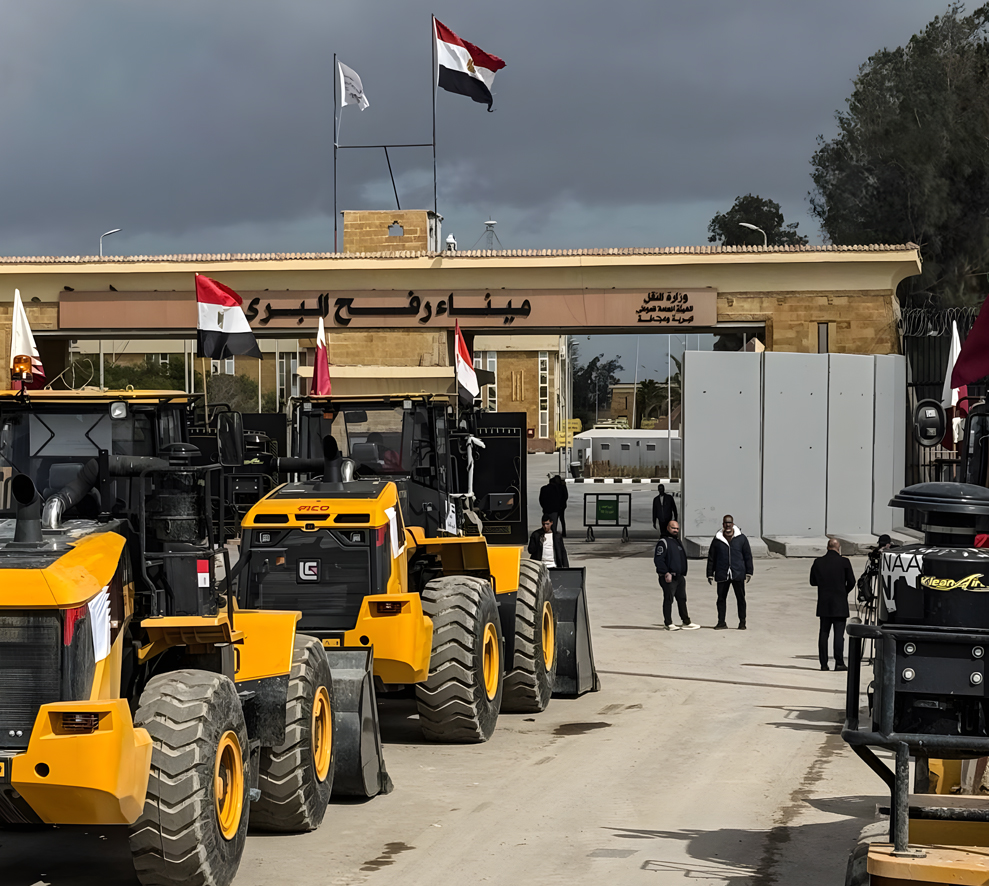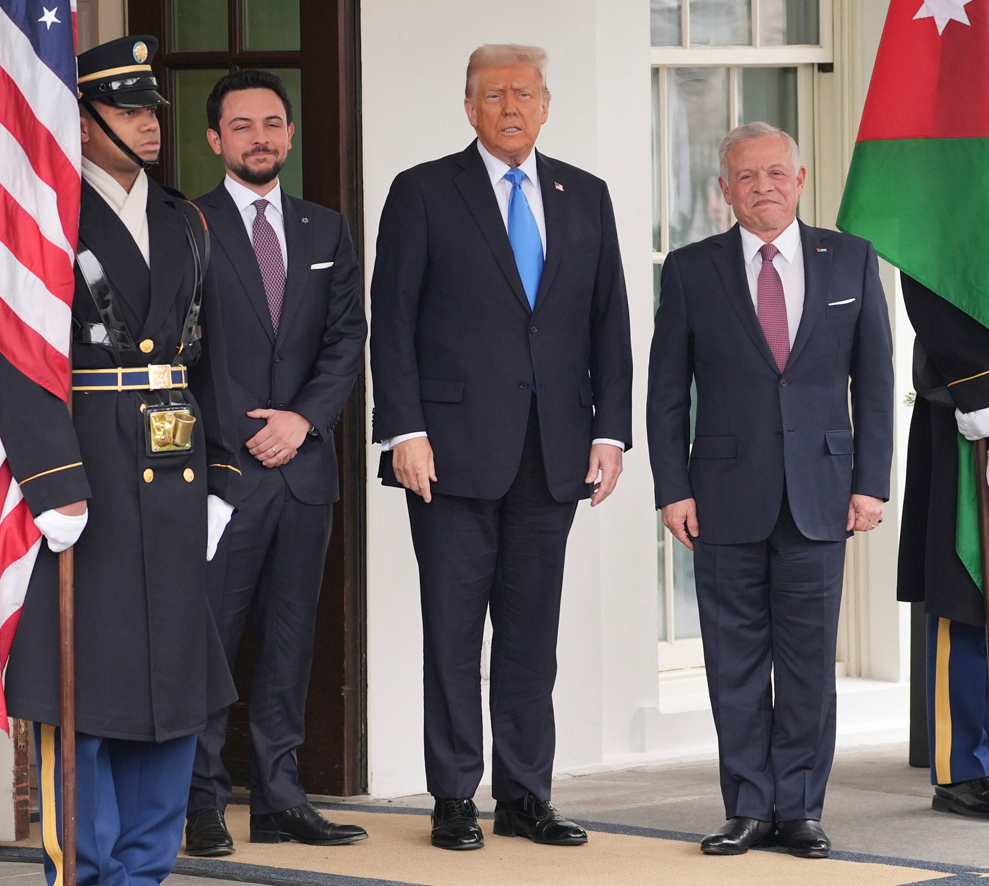On August 14, 2023, a tripartite summit was held in El-Alamein, Egypt, attended by Egyptian President Abdel Fattah al-Sisi, King Abdullah II of Jordan, and Palestinian President Mahmoud Abbas. The summit’s final statement emphasized the importance of international and Arab legal references in resolving the Palestinian issue. It also expressed full support for the Abbas’s efforts and highlighted the significance of the Hashemite historical custodianship over Islamic and Christian holy sites in Jerusalem.
The final statement also stressed that the administration of Jerusalem’s endowments and affairs regarding the Al-Aqsa Mosque (Al-Haram Al-Sharif) should be exclusively under the authority of the Jordanian Ministry of Awqaf Islamic Affairs and Holy Places. Additionally, the final statement called for adherence to all elements of the Arab Peace Initiative and emphasized the need to build on the meeting of the secretaries-general of the Palestinian factions.
A summit between the three leaders was held nearly seven months after a similar summit in Cairo on January 17. The Cairo summit was the first official Arab response to the formation of the new Israeli government led by Benjamin Netanyahu. The summit occurred just weeks after El-Alamein hosted a meeting of the secretaries-general of Palestinian factions on July 30 attended by Abbas and officials from various Palestinian factions, with the exception of the al-Jihad al-Islami movement, the As-Sa’iqa[1] and The Popular Front/the General Command organizations.
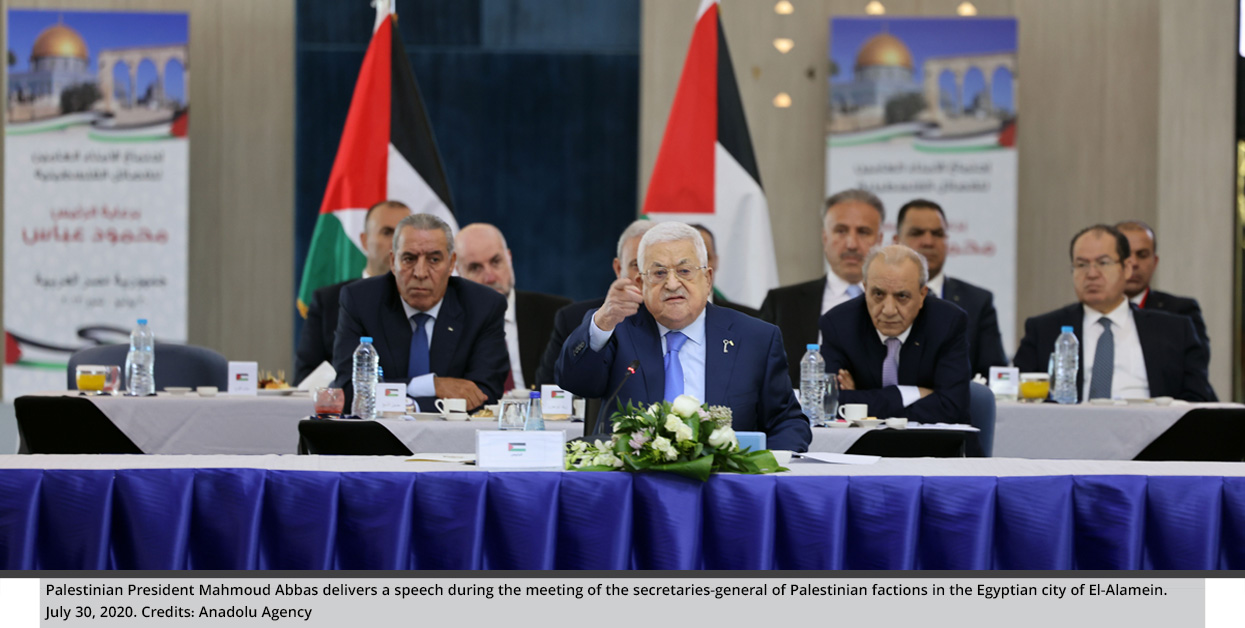
Events between the Summits of the Leaders and the Factions
The period between the two summits witnessed a series of important and inseparable events.
First, on August 8, Abbas visited the Jordanian capital Amman, where he met with His Majesty King Abdullah II bin Al Hussein. This meeting came hours after His Majesty met with Assistant to the President and White House Coordinator for the Middle East and North Africa Brett McGurk to discuss the Palestinian cause.
Second, on August 10, Abbas retired 12 governors from the West Bank and Gaza Strip and formed a presidential committee to select candidates for governors.
Third, on August 10, Abbas received a phone call from the head of Hamas’ political bureau, Ismail Haniyeh, to discuss the formation of a committee to follow up the outcomes of the secretaries-general of the Palestinian factions meeting held in El-Alamein.
Fourth, on August 10, Abdel Ilah al-Atira, adviser to Palestinian Prime Minister Mohammad Ibrahim Shtayyeh, issued statements regarding major and wide changes that will include ambassadors, ministers, and a number of official figures in the Palestinian Authority after the governors were retired.
Fifth, on August 12, the Kingdom of Saudi Arabia announced the appointment of its Ambassador to the Hashemite Kingdom of Jordan, Nayef Ben-Bandar al-Sadiri, as Ambassador Extraordinary and Non-Resident to the State of Palestine and Consul-General of the City of Jerusalem.
Sixth, on August 14, a consultative meeting was held in the Gaza Strip under the auspices of Hamas. The meeting was attended by a group of factions, institutions, and figures to discuss local elections. At the end of the meeting, the participants called on government bodies in both the Gaza Strip and the West Bank to facilitate the holding of local elections under the supervision of the Central Elections Committee. Additionally, they emphasized the need for cooperation among factions and national and community bodies to overcome any obstacles to holding these elections.
Regional Determinants Affecting the Future of the Palestinian Authority
The positions and events that occurred during the period between holding the summit of the Palestinian factions and the summit of the three leaders indicate that the internal crisis in the Palestinian Authority may have reached its peak in terms of politics, security, and economy. There is an urgent need for necessary measures to be taken to preserve the role of the Palestinian Authority and ensure its future, especially in light of the changes that the Palestinian cause is undergoing and the accelerated Israeli actions on the ground. These changes serve as a prelude to future steps within the Palestinian Authority and in its relationship with the factions. They also prepare the Palestinian Authority as an entity capable of confronting Israeli policies and reviving the political process for negotiations with Israel.
Politically, the Israeli policies and positions on the ground are becoming more severe every day, while the Palestinian Authority is more incapable than ever of confronting the settlement, Judaization, and daily attacks by settlers on Palestinians in the West Bank. At the same time, the political division between the West Bank and Gaza is entrenched. A quasi-state in Gaza is a worrying reality for the leaders of the Authority.
From a security perspective, the crisis of the Palestinian Authority’s control in Jenin has intensified and spread to Tulkarm and the Aqabat Jaber camp in Jericho. Other areas, such as Hebron and Qalqilya, have experienced chaos and a loss of control over illegal weapons in local events that were not related to confrontations with Israeli forces. Abbas appears to have attributed these difficulties to the governors, who bear the primary responsibility for these areas, both politically and in terms of security.
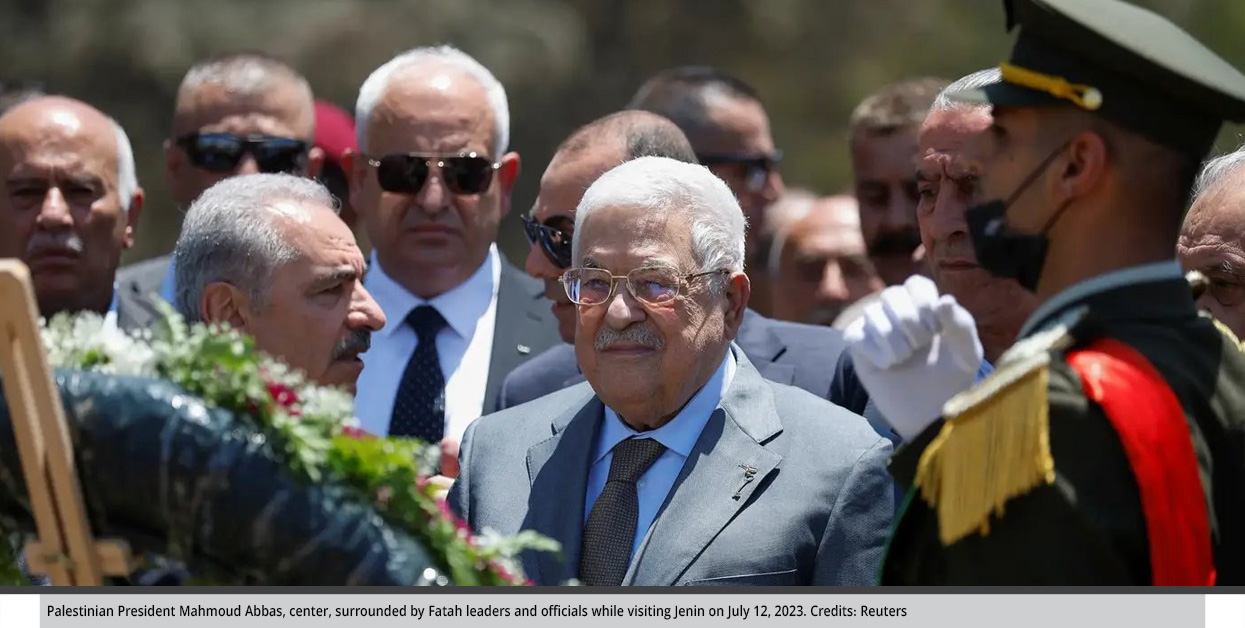
In addition, the growing influence of some governors makes the decision to dismiss them a complex step that may achieve multiple goals simultaneously: imposing new and strict security measures in the governorates, containing the ambitions of certain Palestinian leaders to succeed Abbas, and sending messages to all relevant parties about the seriousness and ability of the Palestinian Authority to exert control over the West Bank.
Economically, the Palestinian Authority is facing a financial crisis that threatens to destabilize the domestic situation. This is largely due to the ongoing issue of public employees’ salaries (both civilian and military) that began at the end of 2021, a crisis which the Palestinian government does not seem to have a plan to address. This may have caused an increase in desertions among security service members and officers seeking work within the Green Line or in Israeli settlements as well as threats by the Unified Movement of Teachers to launch an indefinite and comprehensive strike at the start of the new school year, with the possibility of Medical Syndicate joining the strike. Additionally, there are threats from government doctors to collectively resign from the Palestinian Ministry of Health.
The Hard Conditions of Preserving the Palestinian Authority
The objective of preserving the Palestinian Authority and averting its collapse is a matter of interest not only to Palestine, but also to regional and international stakeholders. To fulfill this objective, Abbas was required to implement decisive and immediate measures on both the domestic and regional level that would ensure the Authority meets challenging conditions for survival. This was manifested initially in the decision to dismiss the governors. It is anticipated that this course of action will be sustained through the following eight measures.
First, the Palestinian government is considering ministerial changes to address the ongoing financial crisis and security challenges. These changes are necessitated by the current government’s inability to effectively manage these issues. The proposed changes could extend to Palestinian embassies, consulates, and overseas representations, which account for a significant portion of the Authority’s general budget. It is plausible that professional and nonpartisan public figures with professional backgrounds may be appointed to new positions such as governors, ministers, ambassadors, etc. These appointments would likely be made with the tacit agreement of Hamas and other factions that participated in the El-Alamein meeting of the secretaries-general of Palestinian factions.
Second, there are plans to make changes in the leadership of the security services to bolster public confidence and enable the implementation of new policies for managing security in the West Bank.
Third, there is a consideration for an unofficial appointment of a deputy president for the Palestinian Authority. An official appointment would require complex procedural mechanisms, including amendments to the basic law and convening the currently suspended Legislative Council, which has been inactive since December 2018.
Fourth, strict security campaigns are being launched with the participation of all security services across various Palestinian governorates. These campaigns target instances of chaos, lawlessness, and illegal activities, with the primary objective of collecting unlicensed weapons, apprehending wanted individuals, and strictly enforcing order.
Fifth, new financial measures are being implemented to alleviate the economic crisis. These measures focus particularly on the issue of salaries for employees (both military and civilian) of the Palestinian Authority, specifically those with low incomes. The aim is to halt the desertion of security service personnel, prevent teacher and doctor strikes, and avert a flare of domestic unrest.
Sixthly, a date for holding local elections in the West Bank and Gaza Strip is being announced, in agreement with Hamas and other factions that participated in the El-Alamein meeting. This complex step aims to reduce internal tension arising from political division and to convey a message to the international community and donor countries that a democratic status exists within the Palestinian Authority. It also lays the groundwork for future steps aimed at ending division, integrating Hamas into the Palestinian political system, and holding general elections (both presidential and legislative).
Seventh, arrangements are being accelerated for holding the Eighth General Conference of the Fatah Movement. The objective is to regulate the Movement’s internal affairs in preparation for the next stage and to provide organizational legitimacy to Abbas’s decisions aimed at reducing competition and conflicts within the movement.
Eighth, the El-Alamein summit represented an intensification of Palestinian-Jordanian-Egyptian understandings aimed at regulating the Palestinian situation in anticipation of existing and future challenges. These challenges include those posed by the extreme right-wing Israeli government and the Iranian multiple fronts project. Many items in the summit’s final statement reflect this.
Regulating the Palestinian situation involves correcting the internal conditions (political, security, and financial) of the Palestinian Authority in both the West Bank and Gaza Strip. As such, Hamas cannot be excluded from the political scene, particularly since it is part of upcoming arrangements and has the potential to make concessions that would secure its position within the Palestinian situation and enhance its political ambitions regionally.
[1] Officially known as: The Vanguard for the Popular Liberation War. the name " As-Sa'iqa" in Arabic means: the thunderbolt: the Translator.
Keep in touch
In-depth analyses delivered weekly.

Related Analyses:







